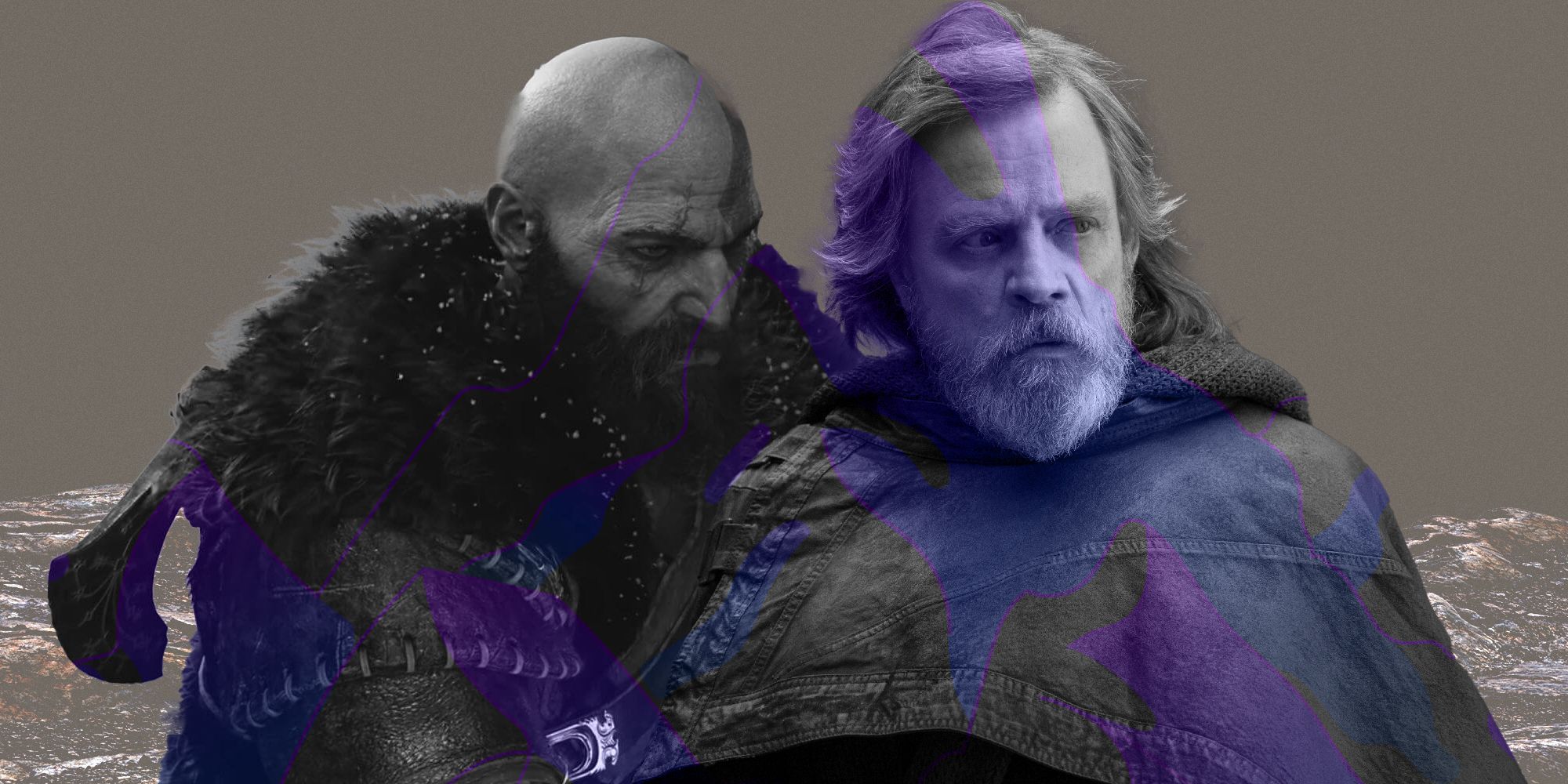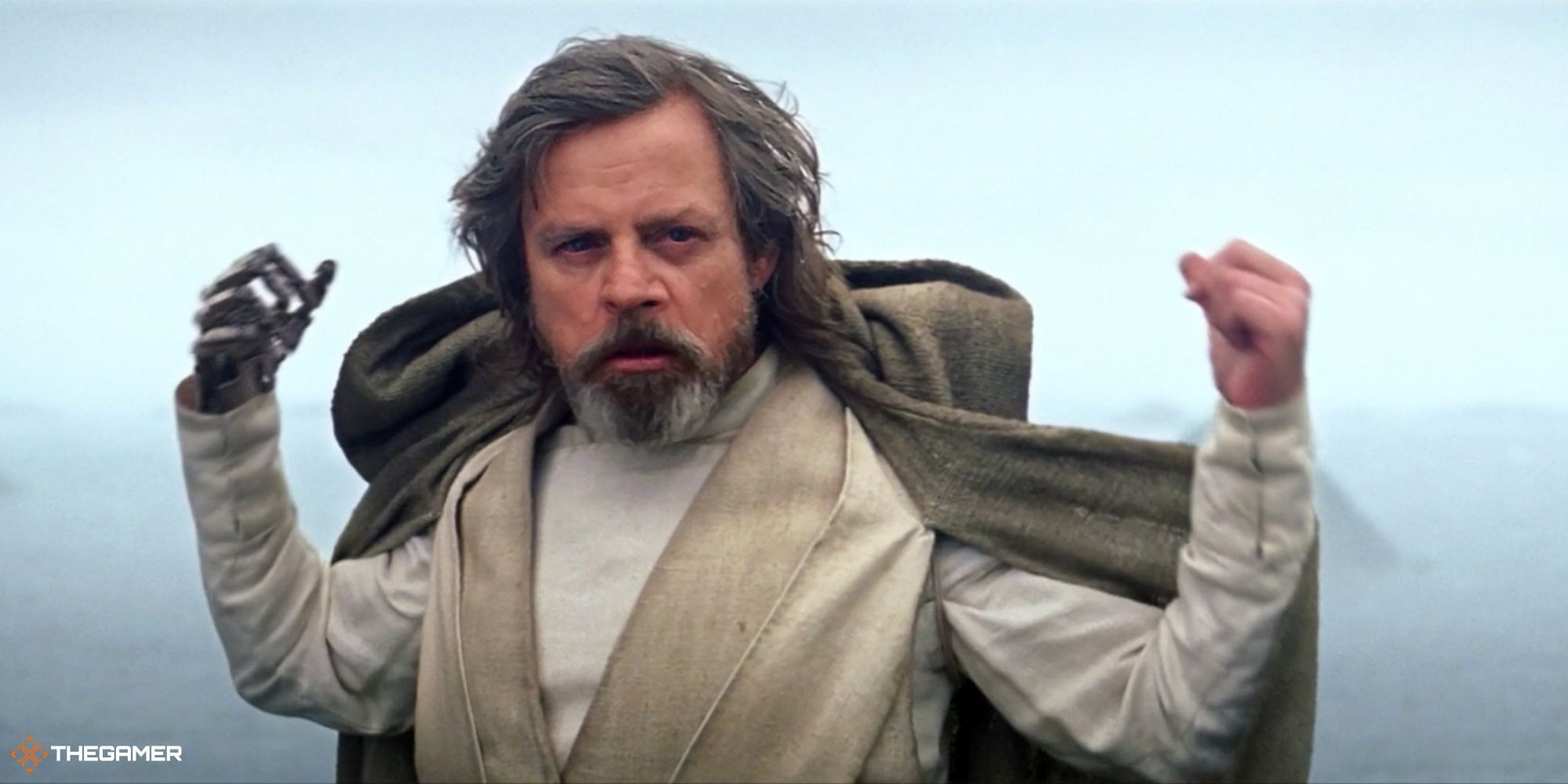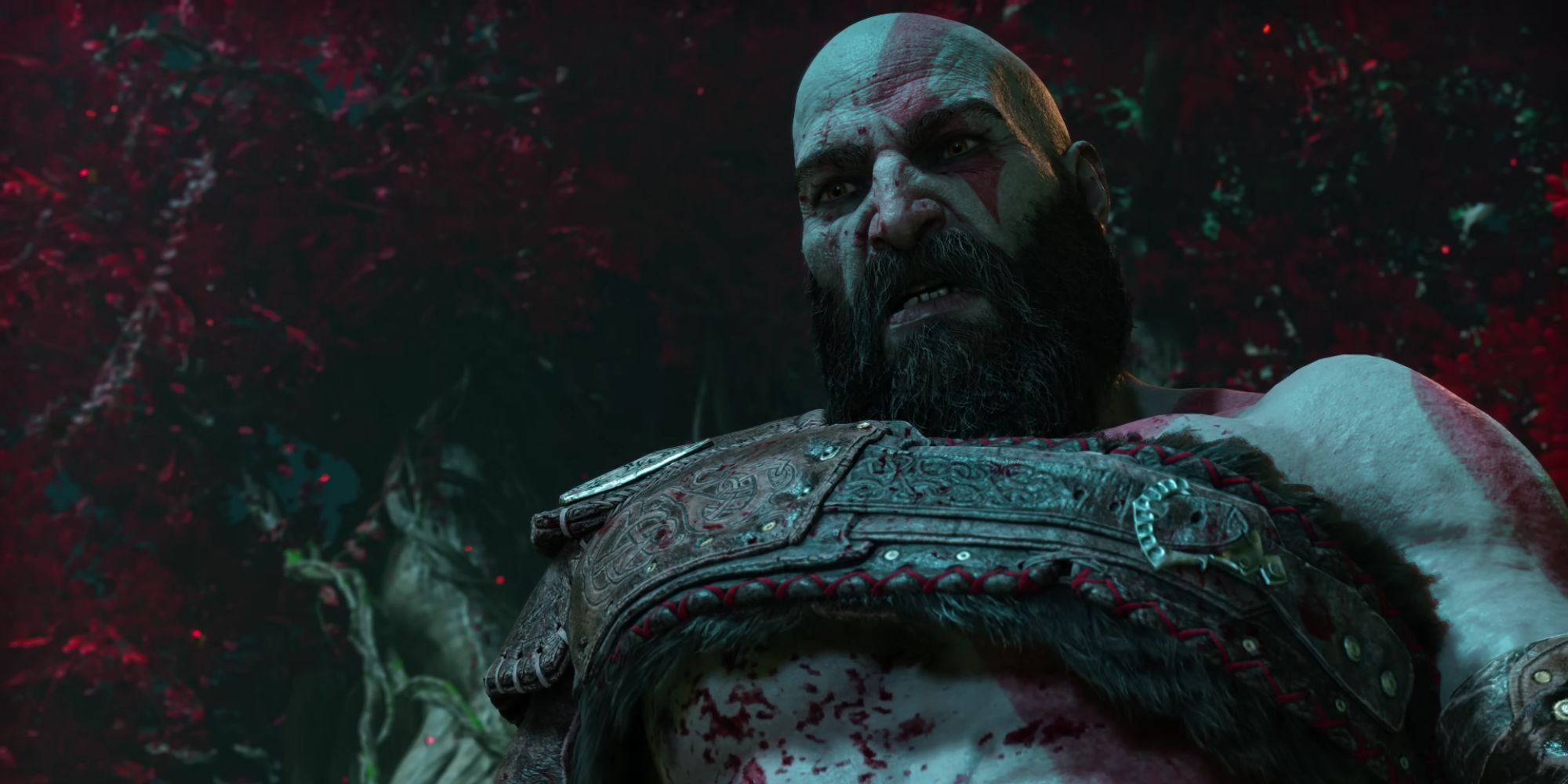This article contains spoilers for the opening hour of God of War Ragnarok.
God of War ended with a dream. After climbing the Mountain to scatter Faye's ashes from the highest peak in the Nine Realms, Kratos and Atreus descended the peak, returned home, and went to sleep. But, in a vision of the future, Atreus sees them awoken in the middle of the night by peals of thunder and crackling lightning. They emerge from the cabin and see Thor, hammer on his hip, standing outside. The God of Thunder seems ready to strike.
But, when Thor actually shows up in God of War Ragnarok, he… asks to come in and share his mead with Kratos. The two gods do, eventually, come to blows in a fight reminiscent of 2018's Baldur battle. But before that, there's talking around a dinner table. Not exactly what you might have expected from the shock and awe of Atreus' vision.
Ragnarok's subversion of its predecessor's cliffhanger reminds me of the similar setup-punchline relationship between Star Wars: The Force Awakens and The Last Jedi. J.J. Abrams' entry concluded with Rey piloting the Millennium Falcon to Ahch-To, climbing the long, winding rocky stairway to reach the island's grassy peak, and offering Luke's lightsaber back to the hermit Jedi. The movie ended on this shot, as the camera swirled around an expectant Rey and a mysterious, silent Luke.
We waited two years to see how Luke would react. And, when Rian Johnson picks Rey's story back up in The Last Jedi, Rey is still waiting to see what her would-be mentor will do. Finally, Luke takes the lightsaber in his hand, studies it for a moment… then throws it over his shoulder. The ballooning expectations that had been inflating for years, were suddenly punctured.
The challenge of making a sequel to a successful movie or game, or anything, is figuring out which elements of the original were essential and which were incidental. In its second season, The White Lotus has recently provided an example of one way to answer. The specific characters changed, but the resort, the skewering of the wealthy, the murder mystery setup, and a focus on social commentary (all the things that defined the first season), remained.
Following up a cliffhanger is a specific, smaller version of that bigger, more general challenge. Audiences may view elements as essential that the creators viewed as incidental. This is part of the reason that the audience reaction to The Last Jedi was so mixed. How you react to Luke’s action reveals who you think Luke is.
If you can only conceive of Luke Skywalker as a mythic icon of heroism, his isolation and cynicism in The Last Jedi won't make sense. Johnson makes this unavoidable for viewers. From the first moment that we meet Luke in The Last Jedi, he is a rejection of that version of Luke Skywalker. Though Luke throwing the lightsaber subverts the expectation of the character as a static, unchanging force for good, in doing so it places him, once more, on the hero's journey. What could be more classically Star Wars than Luke Skywalker, initially, rejecting the call to adventure?
God of War Ragnarok's subversion is less significant, and the game seems to be more broadly crowd-pleasing as a result. Thor is a character who audiences have vaguer expectations for than Luke Skywalker. No one booting up Ragnarok expects the character to be played by Chris Hemsworth; it’s clearly a different take on the God of Thunder. Plus, the expectation being subverted is of how the situation will resolve, not of who the character actually is. Thor wanting to drink some mead isn’t surprising for anyone who knows the character.
When years pass before a story can be resolved, this is the tightrope that creators are walking. Do you give audiences exactly what they expect? If not, how do you give them something they don’t expect, but still like? It isn’t easy to plan a surprise party for a millions-strong fandom, but that’s what big franchise entries are effectively trying to do. And, like Luke and Kratos, audiences may chuck the gift or opt to share some mead. Creators unfortunately can’t know which outcome will happen. That’s the cliffhanger for them.



